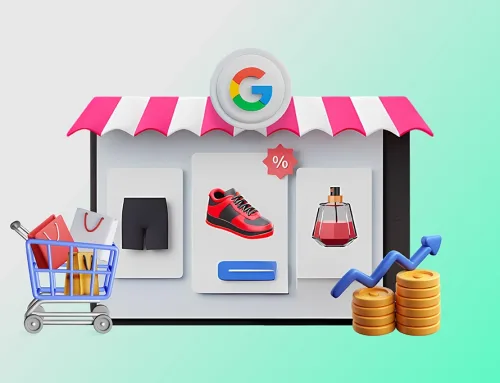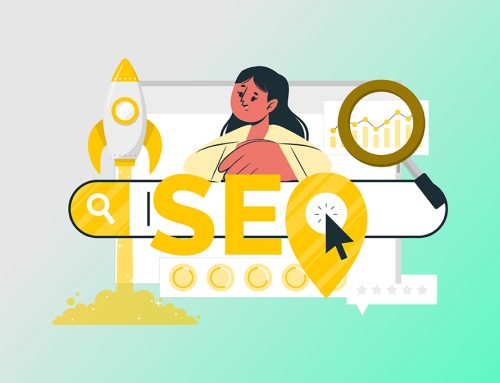Is it true to say that businesses now rely significantly on digital marketing as part of their overall strategy?
It’s important to be able to connect with customers and companies wherever they are, as they are constantly online and in action.
But this constantly evolving digital environment might often become too much to handle. How can you effectively create, optimize, and manage an agile digital marketing strategy while managing several other responsibilities and tasks?
We are here to assist you with the most effective digital marketing strategies to become more visible online and grow your business.
What is a Digital Marketing Strategy?
A plan for using channels to increase your online presence is known as a digital marketing strategy. It should include things like your competition, strengths and weaknesses, and target audience.
You should use the data from across the business to inform, speculate, and develop a successful plan. This will assist you in determining your target market, the best marketing channels to use or test, and the best ways to convey your message or brand.
What Are The Most Effective Digital Marketing Strategies?
When it comes to growing your business online, using the right digital marketing strategies is key.
Here are some simple yet powerful ways to boost your presence on the internet:
1. SEO (Search Engine Optimization)
SEO is all about making your website more visible on search engines like Google. When you use the right keywords that people are searching for, improve your website’s loading speed, and make it user-friendly, your site can appear higher up on the search results page.
This means more people can find your website just by doing a regular search for something they need, which can increase your visitor numbers.
2. Local SEO
Local SEO is important if you run a business that has a physical store or office. It helps people nearby find your business easily when they’re searching for services or products like yours.
Further, it involves getting your business listed correctly on maps and local directories, ensuring that when someone searches for a nearby option, your business shows up. It’s about being visible in your local community and drawing in those who are close enough to visit or make a quick purchase.
3. Social Media Marketing
Social media platforms like Facebook, Instagram, and Twitter are not just for chatting with friends; they’re powerful tools for businesses too. By posting regularly, responding to comments, and engaging with your audience, you can build a community around your brand.
This direct connection with customers helps boost your brand’s visibility and can directly influence sales, as followers are more likely to become customers if they feel engaged and valued.
4. Content Writing
Quality content on your website can attract and engage visitors. Whether it’s informative blog posts, helpful how-to guides, or exciting news updates, good content establishes your brand as a trustworthy source of information. Over time, this not only helps in keeping your audience interested but also in converting them into loyal customers, as they come to rely on your expertise and knowledge.
5. Google Ads
Google Ads is a quick way to get your business seen by potential customers. By creating ads that appear in Google’s search results, you can target specific types of users who are already interested in what you offer.
Moreover, you pay a small amount every time someone clicks on your ad, but if your ad is well-targeted, it could bring a lot of interested people to your website quickly. This strategy is great for getting immediate visibility and can be adjusted based on what works best for attracting customers.
6. Brand Reputation
Managing what people see and say about your brand online is crucial. Positive reviews and active, friendly engagement on social media can shape how people perceive your brand.
So, it’s important to encourage happy customers to leave good reviews and to address any negative feedback immediately and politely. A good reputation makes your business more appealing and can greatly influence new customers’ decision to choose you over a competitor.
4 Tips For Creating an Effective Digital Marketing Strategy
By following these steps, you can create a dynamic digital marketing strategy that reaches and resonates with your target audience, driving both engagement and revenue.
1. Know Your Customer
Truly understanding your audience is crucial. You should know who your customers are, what motivates their purchases, and where they prefer to shop. Use data to build a detailed profile of your audience. This includes:
- Identifying the best channels for reaching your target demographics.
- Speaking in a way that resonates with your customers.
- Recognizing their main concerns and emotionally connecting with them.
- Developing buyer personas to tailor your content and predict purchase behaviours.
- Being culturally sensitive.
- Consider partnerships, like with influencers, to broaden your reach.
- Focusing on creating experiences that prompt action, rather than just showcasing products.
- Implementing automation tools to target better and segment your audience.
2. Audit & Assess
Take stock of the digital marketing tools and platforms you currently use. List everything on a spreadsheet to view all your marketing activities across various media. Link each item to your business goals.
For instance, if increasing revenue is your aim, track which channels and content pieces contribute to this goal. This will allow you to concentrate on what works and explore new avenues for potential gains.
3. Focus on The End Result
Marketing often concentrates too much on the product and its numbers, like revenue, sometimes overlooking the actual needs the product serves. It’s important to keep the focus on your customers and why they need your product.
Highlight the benefits and experiences your product delivers to make it memorable and essential to your customers.
4. Review & Refine
As you develop your strategy, establish key performance indicators (KPIs) that align with your main business objectives. Have a system to:
- Move away from vanity metrics, such as social media likes, which might be misleading and not reflective of actual success.
- Continuously review and adapt your KPIs.
- Set regular intervals for analysis to ensure you’re on track and make adjustments as needed.
- Learn to identify and focus on metrics that truly matter when something doesn’t seem to be working as expected.
Takeaway
The most important thing in any digital marketing effort is to stick to your main goal, not just your product. Highlight the advantages, meet the real needs of your customers, and get to know what interests them.
Also, keep track of the social trends that influence different groups of people, like the worldwide economic downturn. Remember, it’s your job to keep up with your customers, not the other way around.
If you want the most effective digital marketing strategies for your company then you should hire the best digital marketing agency.
You don’t need to go and search for the one because WeCreative is here to help you grow your business with our marketing strategies like SEO, Local SEO, Social Media Marketing, Content Writing, Google Ads, and Brand Reputation.
FAQs
What are digital marketing strategies?
Digital marketing strategies are comprehensive plans focusing on using online channels to promote a brand, product, or service. These strategies aim to reach a targeted audience, increase brand awareness, and drive conversions through various digital platforms.
What are the 4 major types of digital marketing?
The four major types of digital marketing are:
- Search Engine Optimization (SEO)
- Pay-per-click (PPC) advertising
- Social Media Marketing
- Content Marketing
What is PPC in digital marketing?
PPC is a digital marketing model in which advertisers pay a fee each time one of their ads is clicked. It is commonly associated with search engines and social media advertising platforms.
What exactly does a digital marketing agency do?
A digital marketing agency develops and manages marketing strategies tailored to the digital space to help businesses improve their online presence. Services often include SEO, PPC, content creation, social media management, and data analytics to optimize marketing efforts and drive business growth.



